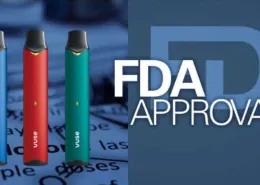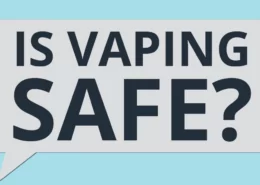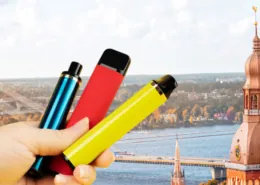Vaping Regulations: Rules for Countries After WHO Call
The World Health Organization (WHO) has recently called for governments worldwide to treat vaping in a similar manner to tobacco, urging them to ban all flavors. This move has brought the issue of vaping regulations to the forefront, with countries adopting various approaches to address the growing concerns surrounding e-cigarettes.
According to a WHO report from last year, vapes are currently banned in 34 countries, including Brazil, India, Iran, and Thailand. However, enforcing these rules has proven challenging, leading to the proliferation of black market e-cigarettes in many of these nations.
On the other hand, 74 countries, predominantly in Africa but also including Pakistan, Colombia, and Mongolia, have yet to implement any regulations on e-cigarettes. In other key markets, such as the United States and China, governments allow vapes but have put in place varying degrees of regulation.
A Closer Look at Country-Specific Vaping Rules
Australia
In Australia, a prescription is required to use nicotine-containing e-cigarettes. However, the country has been grappling with an influx of illegal disposable vapes. As of January 1, 2023, it has been illegal to import disposables into Australia. Beginning in March, it will also be illegal to import any type of vape not approved as “therapeutic” by the Therapeutic Goods Administration, the Australian medical regulator. The government also plans to introduce a bill next year to prohibit the domestic manufacturing or supply of non-therapeutic e-cigarettes.
China
China, the world’s largest producer of e-cigarettes, introduced a series of laws in 2021 to control their domestic use, including a ban on flavored products that many Chinese manufacturers continue to export. The government cited health concerns related to youth vaping as the primary reason for these regulations. E-cigarette companies in China now require a license to sell to consumers, and the country introduced taxes on production, import, and wholesale distribution in 2022.
European Union (EU) and Member States
The European Commission has established regulatory standards for e-cigarettes, including limits on nicotine content and labeling requirements that explain they should not be used by non-smokers. Manufacturers must register with the government before selling their products.
Individual EU member states have also introduced their own laws governing the use of vapes. In France, people under the age of 18 cannot buy vapes, and their use is banned in certain public places, including universities and on public transport. Italy lifted a ban on using electronic cigarettes in public in 2013, but their use in or near schools remains forbidden.
Disposable vapes have attracted particular attention from lawmakers in some EU countries due to environmental and health concerns. France has moved to ban them entirely, while the German Federal Council has called on the government to push for a similar ban across the EU.
Japan
In Japan, e-cigarettes containing nicotine are classified as medicinal products under the law. To date, none have been approved for use.
Russia
In Russia, minors are prohibited from buying e-cigarettes, but there are no restrictions on flavors or disposable vapes. Local media reported in November that the government had quashed a proposed ban on e-cigarettes, with the Russian Ministry of Health citing potential loss of tax revenue and the fueling of a black market as reasons for this decision.

ECIGATOR
Ecigator is one of the well-known vape brands spun off from FM Technology Co., Ltd, it’s an ISO-certified disposable vape manufacturer for OEMs, ODMs, and OBM since 2010. The founder team comes from top firms with more than 10 years of experience in the vaping industry and has devoted thousands of hours to providing users with a better and better experience.
Turkey
The sale of e-cigarettes is effectively banned in Turkey, as imports are allowed only in small quantities and production is forbidden. Despite this, e-cigarettes remain widely available.
United States
In the United States, the world’s largest market for nicotine alternatives, e-cigarette manufacturers must obtain authorization from the U.S. Food and Drug Administration (FDA) to legally sell their products. Some have been allowed on the market while they await the agency’s review of their applications.
The FDA considers several factors when weighing an application, including the potential benefits for helping smokers quit. To date, the agency has not approved any vape flavors other than tobacco. However, poor enforcement has led to the widespread availability of flavored, often disposable products.
United Kingdom
The United Kingdom has placed vapes at the center of its public health policy, even offering starter kits to smokers to help them quit. However, the influx of flavored disposable vapes has driven concerns around the environment, health, and youth vaping.
In response, the government announced at the end of January that it would ban disposable vapes and introduce powers to regulate e-cigarette flavors and packaging, following a threefold rise in the number of children vaping in the past three years. In March, the government also said it would introduce an extra tax on vaping products from October 2026.
Conclusion
As countries grapple with the growing popularity of vaping and the potential risks associated with e-cigarettes, the regulatory landscape continues to evolve. While some nations have opted for outright bans, others have taken a more nuanced approach, seeking to balance public health concerns with the potential benefits of vaping as a tool for smoking cessation.
As more research emerges and the long-term effects of vaping become clearer, it is likely that governments will continue to refine their policies to address the unique challenges posed by this rapidly evolving industry.
- Is It Illegal to Vape or Smoke While Driving in Minnesota? - August 15, 2025
- American Airlines Vaping Passenger Alleges Assault in Police Report - August 15, 2025
- NEXA PIX 35K Disposable Vape with Crystal Tank Review - August 15, 2025









